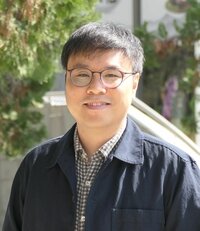


研究助理教授
PhD (Cultural Studies), Chinese University of Hong Kong
MSSC (Cultural Studies in Asia), National University of Singapore
MPhil (Cultural Studies), Chinese University of Hong Kong
BA (Modern Languages & Intercultural Studies), Chinese University of Hong Kong
KKB 216
3943-6622
Joseph (Cho-kiu) LI 李祖乔 earned his PhD in Cultural Studies from the Chinese University of Hong Kong (CUHK). He also holds a Master’s degree in Social Science from the Cultural Studies in Asia program at the National University of Singapore. He was a recipient of the Hong Kong PhD Fellowship (2017-2019) and the Global Humanities Junior Fellowship, funded by Freie Universität Berlin (2018).
Before joining CUHK, he worked as an editor and policy researcher in non-governmental organizations, taught "In Dialogue with Humanity" (与人文对话) at CUHK, and courses on Cultural Studies in Asian contexts at Hang Seng University of Hong Kong (HSUHK). He is a convenor of the Seminar for Hong Kong Culture and Society (香港文化与社会研讨会). His writings have been published in Public Humanities, HAU: Journal of Ethnographic Theory, Radical History Review, global-e, Critical Asia Archives: Events and Theories, Modern China Studies, Hong Kong Studies, and Local Discourses (本土论述), among others. His social and cultural commentaries can be found in various media outlets, including Mingpao (明报), Initium Media (端传媒), Sample (样本), City Magazine (号外), Hong Kong Economic Journal (信报), and Lianhe Zaobao (联合早报) in Singapore.
He is currently engaged in several research projects and directions, including (1) a book manuscript on "postfear" as a public affect, (2) examining how different public affects can take shape as affective everyday and ordinary heritage, such as small shops and video games, and (3) exploring how different affective investments can be transformed into various cultural practices, such as transformative tourism (especially Inter-Asia and Inter-Islands), pedagogy, public policy, and social economies and commons that provide sustainability, creativity, mutuality, safety, and freedom in an age of precarity.
He is also interested in exploring public humanities, both in cultural practices and theories, in contexts of varying scales—from a shop, a street, a district, to broader areas such as Hong Kong, the Greater Bay Area, China, Asia, and the Global East—especially in relation to late colonialism, the Cold War, and the post-neoliberal multipolar world.